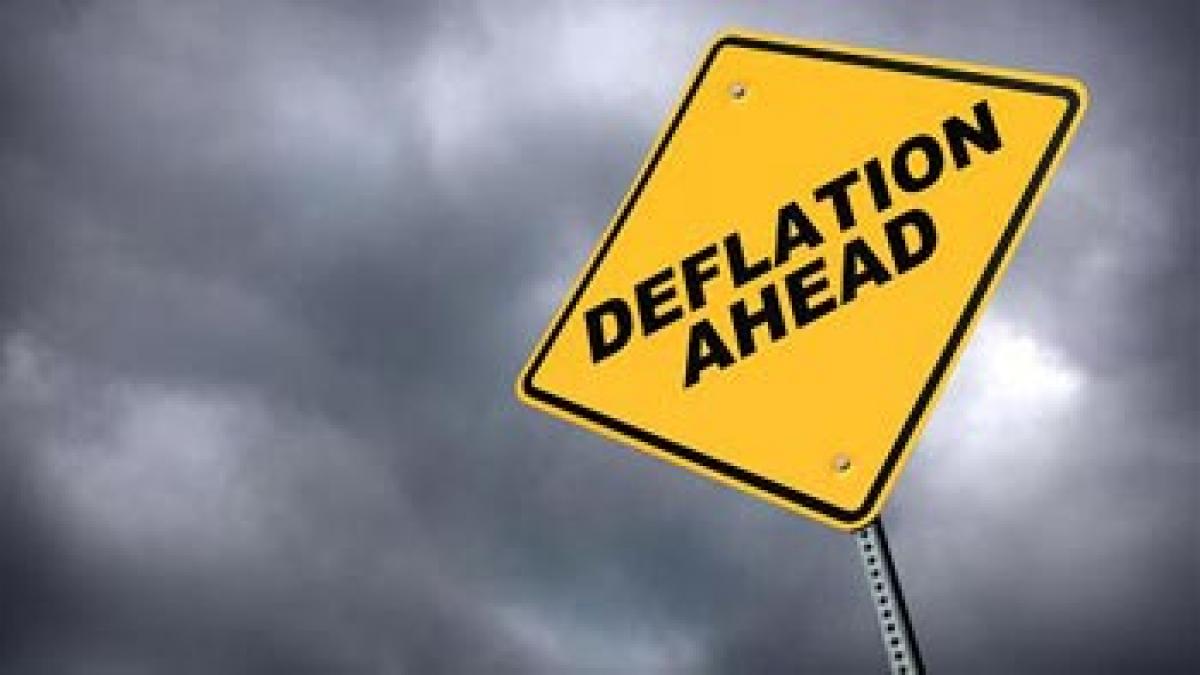Live
- NASA Tracks Five Giant Asteroids on Close Approach to Earth Today
- Pushpa 2 Hits ₹1000 Crore in 6 Days: How It Compares to Other Top Indian Films
- Vivo X200 and X200 Pro Launched in India: Price, Specifications, and Features
- Nitin Gadkari Admits Feeling Embarrassed at Global Summits Over Rising Road Accidents in India
- Comprehensive Review on Indiramma Housing Survey and Welfare Initiatives Conducted via Video Conference
- Jogulamba Temple Records Rs 1.06 Crore Hundi Revenue in 150 Days
- Opposition Slams ‘One Nation, One Election’ Bill as Anti-Democratic; BJP Allies Support the Move
- Celebrate Karthigai Maha Deepam Virtually with Sri Mandir’s LIVE Darshan Experience
- BJP Extends Support to Samagra Shiksha Abhiyan Employees' Strike, Demands Immediate Regularization and Welfare Benefits
- Dr. M. Priyanka Stresses Quality Education, Nutritious Meals, and Cleanliness in Schools
Just In

Hyperactive central banks warn of \'unmoored\' inflation expectations but may well be weighing the anchor themselves. Skewed by the oil price collapse of the past 20 months, headline inflation rates across Europe and Japan are currently near zero or even falling. Some economists now expect euro zone inflation for 2016 as a whole to be in the red and no longer dismiss the development as temporary mon
"The road to Hell is paved with good intentions," said Pictet Wealth Management's head of asset allocation, Christophe Donay. "The implementation of negative interest rates by the BoJ and the ECB had quite the opposite result, rekindling deflationary fears through a shock to banks' profitability"
Mike Dolan & John Geddie
London : Hyperactive central banks warn of 'unmoored' inflation expectations but may well be weighing the anchor themselves. Skewed by the oil price collapse of the past 20 months, headline inflation rates across Europe and Japan are currently near zero or even falling. Some economists now expect euro zone inflation for 2016 as a whole to be in the red and no longer dismiss the development as temporary monthly blips.
Fearful these low inflation rates might distort consumer and business behaviour into putting off consumption today and wait for cheaper goods in future, central banks are scrambling to steer expectations back to inflation targets of about 2 per cent. And the only way they seem to be able to achieve that is by being as aggressive as possible in easing monetary policy to try and convince everyone they will eventually succeed in their goals.
The European Central Bank and its peers in Japan, Switzerland, Sweden and Denmark have all pushed their interest rates into negative territory and insist they will go further if needed. The ECB, for one, is widely expected to cut its minus 0.3 per cent deposit rate next week by at least 10 basis points.
But if future inflation expectations are what policymakers are trying to buoy, it's not working and there's a growing chorus of concerns that negative interest rates may actually be feeding the problem. By undermining banks' profitability hence their balance sheets and willingness to lend or even encouraging hoarding of physical cash to avoid deposit fees, financial markets at least have become unnerved about sub-zero interest rates and their unintended consequences.
"The road to Hell is paved with good intentions," said Pictet Wealth Management's head of asset allocation, Christophe Donay. "The implementation of negative interest rates by the BoJ and the ECB had quite the opposite result, rekindling deflationary fears through a shock to banks' profitability."
Since the ECB last cut its already negative deposit rate in December, this inflation gauge has spiralled about 45 basis points lower to as low as 1.36 per cent this week.
It's shown no sign of turning despite a recovery in world oil prices last month and growing expectations of deeper ECB deposit rate cuts and more stimulus. "The market is really challenging the ability of the ECB to create inflation at any point in the future," said Semin Soher, senior portfolio manager at Pioneer Investments.
Difficulty getting the euro lower and perceptions the ECB had not been aggressive enough, early enough were possible reasons, she said. The depression of all components of what's contained in bond yields can create spiral with over-mechanistic central banks. Although there is no agreed gauge of household inflation expectations in the euro zone, surveys elsewhere do show them tallying broadly with the market-based readings - slightly higher in the US, slightly lower in Britain.
And yet for all the head-scratching, some analysts feel market-based inflation expectations may simply be undermined by lack of demand for inflation-protected products in such a low deflationary environment. As a result, pricing is just working off the prevailing monthly inflation rate. "Over the last five years, spot inflation has been the best predictor of inflation breakevens," said Dariush Mirfendereski, global head of inflation trading at HSBC.
"This seems odd because it is backward looking and not forward looking, but it is to do with market psychology, because the greatest demand for inflation products comes when realised inflation prints high," he said. That is one reason the ECB may well just turn a blind eye and wait for its policies to filter through to real prices instead.

© 2024 Hyderabad Media House Limited/The Hans India. All rights reserved. Powered by hocalwire.com







